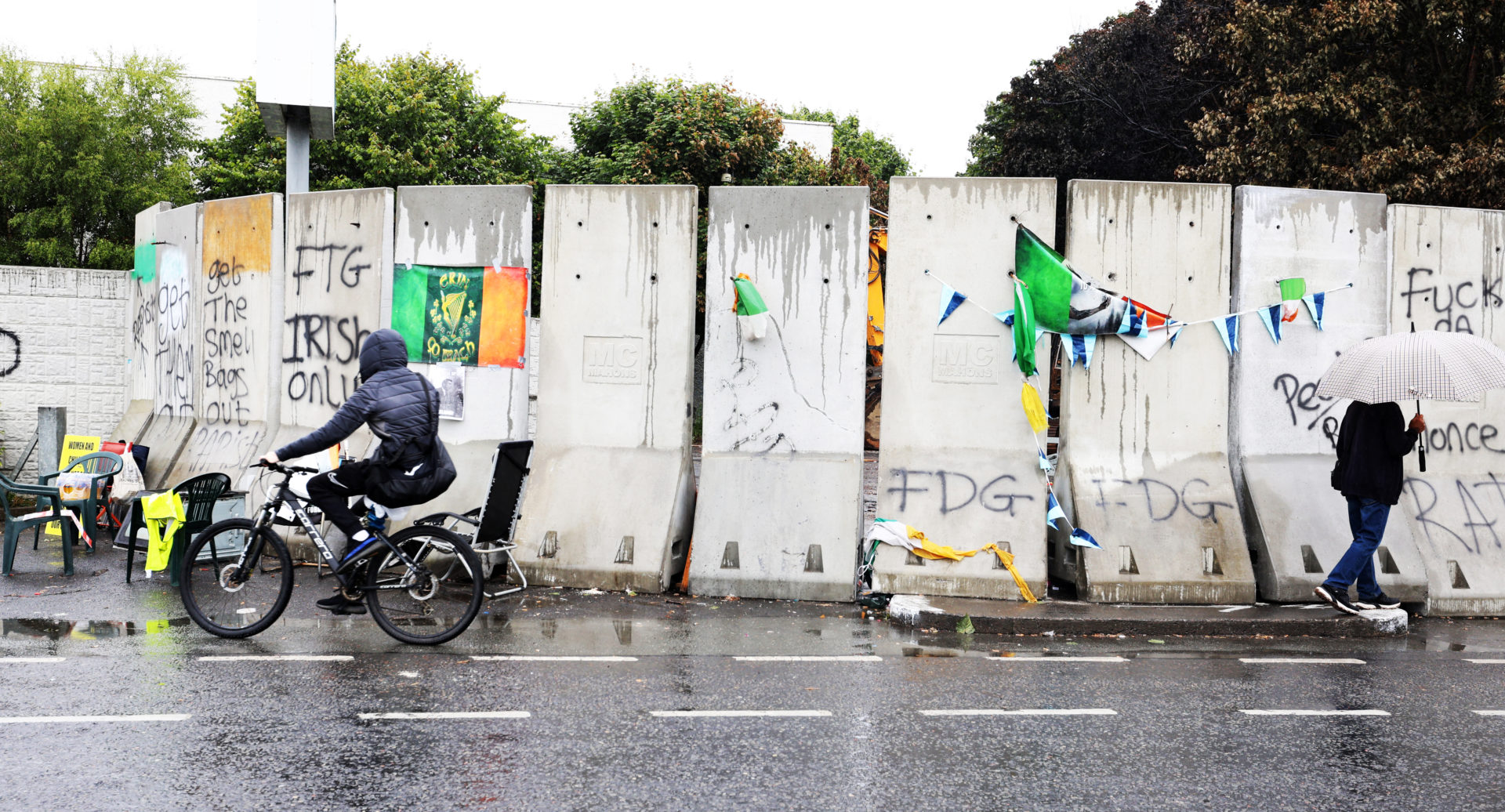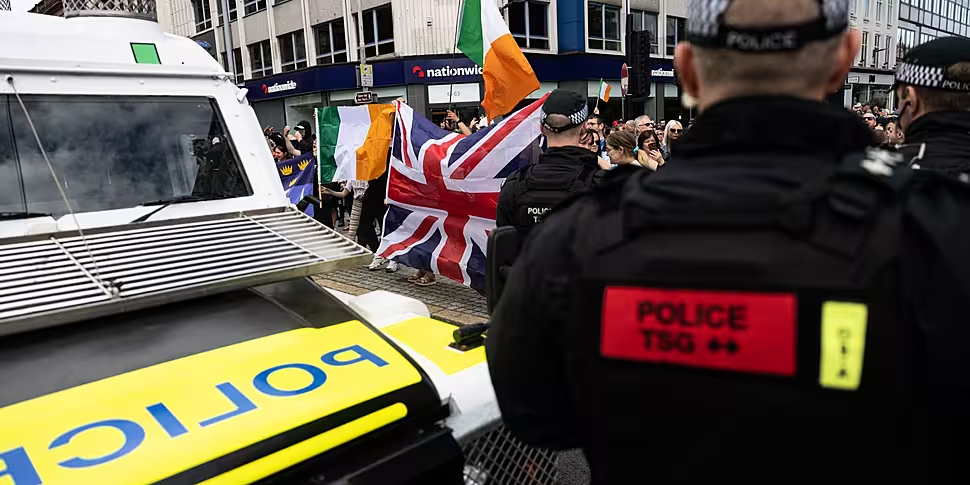Far-right voices are often “amplified” in the media and online “beyond their popularity”, according to an expert in far-right discourse.
In recent months, there has been a troubling surge in riot activity across Ireland, Northern Ireland and the UK, sparking widespread concern and debate.
Postdoctoral fellow at Maynooth University Dr Katy Brown told The Anton Savage Show the media might be playing a role in “normalising far-right politics”.
“There's almost this kind of voyeurism, this morbid fascination with the far-right,” she said.
“Obviously, it is important that we do report on them and their activities, especially with what we've seen over recent days and months and years.
“But sometimes those voices are amplified in the media beyond what their popularity demands.”
She noted a study from Loughborough University showed that Reform’s Nigel Farage was the third most reported-on individual in the build-up to the UK General Election after Keir Starmer and Rishi Sunak.
“Even though Reform UK had not had any clear grounding for that, he was pushed in the media,” she said.
“We really need to pay attention to those dynamics as well when we think about reporting on the far-right.”
Far-right voices
The discourse around “free speech” can sometimes devolve into misinformation, according to Dr Brown.
“That doesn't mean freedom to denigrate communities, to stir up hatred,” she said.
“Musk himself has been playing into a lot of the disinformation that we've seen over recent days.
“I think it was a couple of days ago he retweeted from Britain First the idea that Keir Starmer was going to send people to the Falkland Islands for being involved in the riots.”
When reporting on far-right protests such as those in Coolock, north Dublin, in recent weeks, Dr Brown warned certain coverage will only fuel the flames.
 Scenes near the former Crown Paints building after a fire was started in the building on Friday night after an earlier peaceful public meeting and march to the Coolock Garda Station, 20/07/2024 Image: Rolling News
Scenes near the former Crown Paints building after a fire was started in the building on Friday night after an earlier peaceful public meeting and march to the Coolock Garda Station, 20/07/2024 Image: Rolling News“There is a duty to report on these issues, especially because they are having an effect on communities of colour, the kinds of violence that they've been experiencing,” she said.
“But I think in these scenarios, there is a range of things that you can do - instead of amplifying far-right voices who are often the loudest or the most reported on, we can think about the voices of people who are actively combating the far-right.”
She said some media outlets must also be more direct in how they refer to the far-right, avoiding “euphemisms” like “populist”.
“It creates this link between being popular, being with the people,” she said.
Dr Brown is hoping to develop a “framework” that will outline recommendations for reporting on far-right activities.
Listen back here:









